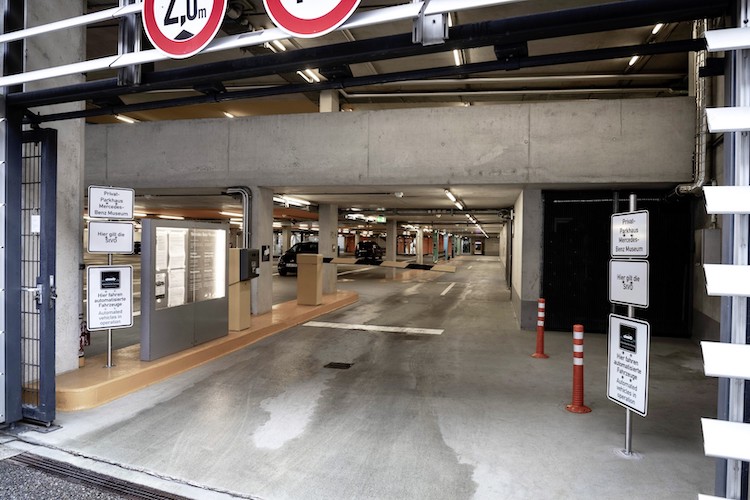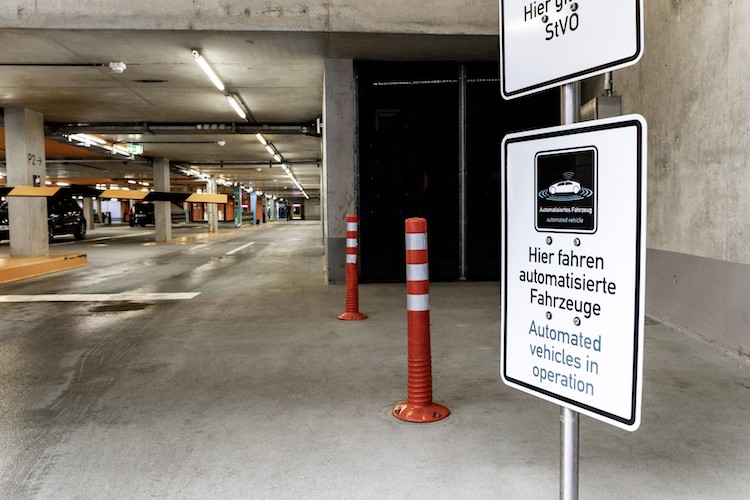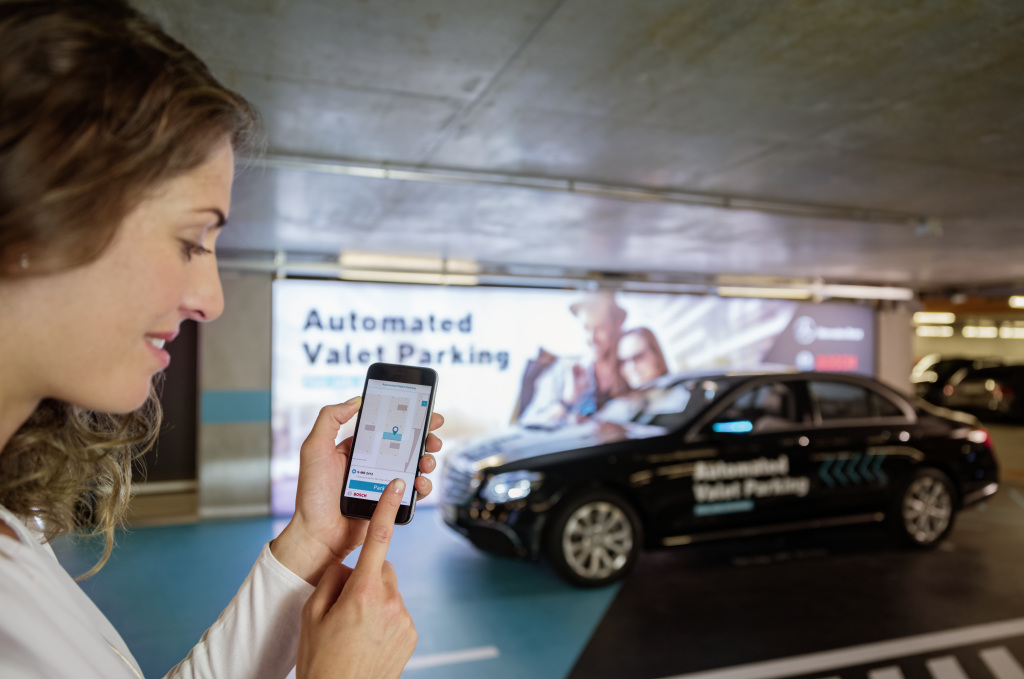Bosch and Daimler have obtained approval for what they claim is the “world’s first fully automated” driverless parking system, or automated valet service.
The two automotive giants say the new system is “a milestone on the way to automated driving”.
The two companies obtained approval from the relevant authorities in Baden-Württemberg for their automated parking system in the Mercedes-Benz Museum parking garage in Stuttgart (pictures).
The automated valet parking service is accessed via a smartphone app and requires no safety driver. This makes it the world’s first fully automated driverless SAE Level 4 parking function to be officially approved for everyday use.
SAE is an international engineering association which has published a list of automation levels for road vehicles, going from 0 for no automation to 5 for full automation, or driverless. Level 4 vehicles are capable of driverless operation, but are intended for human management or co-operation.

Dr Markus Heyn, member of the board of management of Bosch, says: “This decision by the authorities shows that innovations like automated valet parking are possible in Germany first.
“Driverless driving and parking are important building blocks for tomorrow’s mobility. The automated parking system shows just how far we have already progressed along this development path.”
Dr Michael Hafner, the head of drive technologies and automated driving at Daimler, says: “This approval from the Baden-Württemberg authorities sets a precedent for obtaining approval in the future for the parking service in parking garages around the world.
“As a pioneer in automated driving, our project paves the way for automated valet parking to go into mass production in the future.”
Playing it safe: two partners with a common objective
From the very beginning, Bosch and Daimler say their top priority for the driverless parking service was safety.
Since there is as yet no official approval process for automated driving functions that do not require a driver, the local authorities – the Stuttgart regional administrative authority and the state of Baden-Württemberg’s transportation ministry – oversaw the project along with experts from the German technical inspection service TÜV Rheinland from the outset.
Their aim was to assess the operating safety of the automotive and parking-garage technology.
The result is a comprehensive safety concept with appropriate testing and approval criteria that can be applied beyond this pilot project. In the concept, the developers defined how the driverless vehicle detects pedestrians and other cars in its path and reliably comes to a halt when it encounters an obstacle.
They also set up secure communications between all system components and took steps to ensure the reliable activation of the parking maneuver.

The technology behind driverless parking
Drive in to the parking garage, get out, and send the car to a parking space just by tapping on a smartphone screen – automated valet parking has no need for a driver.
Once the driver has left the parking garage to go about their business, the car drives itself to an assigned space and parks. Later, the car returns to the drop-off point in exactly the same way.
This process relies on the interplay between the intelligent parking garage infrastructure supplied by Bosch and Mercedes-Benz automotive technology.
Bosch sensors in the parking garage monitor the driving corridor and its surroundings and provide the information needed to guide the vehicle.
The technology in the car converts the commands from the infrastructure into driving maneuvers.
This way, cars can even drive themselves up and down ramps to move between stories in the parking garage. If the infrastructure sensors detect an obstacle, the vehicle stops immediately.
Project milestones
Bosch and Daimler started developing fully automated driverless parking in 2015, and in the summer of 2017, their pilot solution in the Mercedes-Benz Museum parking garage in Stuttgart reached an important milestone: automated valet parking in real conditions, with and without drivers at the wheel, was presented to the public for the first time.
This premiere was followed by an intensive testing and start-up phase.
Starting in 2018, museum visitors could use the parking service live, accompanied by trained safety personnel, and share their experience.
One aspect of the pilot project involved testing lighting concepts on the vehicles. Turquoise lighting indicates that a vehicle is in automated driving mode and informs passers-by and other road users that the vehicle is driving itself.
The insights from these tests are reflected in the recently issued SAE standard 3134.
Obtaining final approval from the authorities is a further major milestone for Bosch and Daimler: soon, interested parties will be able to experience the innovative valet parking service live in daily operation in the Mercedes-Benz Museum parking garage without additional supervision from a safety driver.

